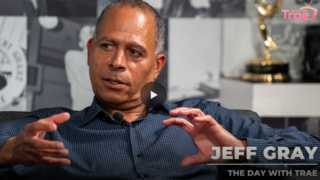
How to manage your remodel (and not lose excess money) …
While you’re open for business
Whether you’re planning a carpet replacement or something considerably larger, there are several steps you can take to ensure that the impact on revenue during this time is minimized and your opportunities to build excitement are maximized.
We’ve worked with several gaming clients on remodels of every size. And, industry-wide, I’ve observed processes that have gone way south and others that have turned “pardon our dust” into a very positive and anticipated event for their guests.
Compare it to planning a wedding – it’s all in the details and “planning beyond the plan.” Consider these tips, whether you’re replacing your carpet on the gaming floor and want to minimize machine downtime, or creating a new restaurant space or bar and want to keep revenue loss to a minimum, or even increase it.
Here are 10 tips on what I’ve found:
1. Establish a schedule well in advance to minimize impact and maximize the final outcome.
Depending on the scope of your project, just the planning phase alone will take several months to over a year. This means working with your operations team and all departments that will be impacted. You’ll be factoring in holidays, your peak season, and annual events that drive traffic. You’ll work very closely with your marketing department on their yearly marketing calendar (so as not to schedule major promotions during construction time). You’ll also have your marketing department develop a program around this project. You’ll be contacting the gaming commission and all other entities that have influence over your project so that you understand their time constraints.
2. Have an expert on your team who is intimate with your existing construction and technology; review contracts with existing vendors that will be involved.
Are you adding in a new bar? Will you be able to run your beverage lines under a raised floor, or do you have a slab? Will your beverage vendor cover any of these additional costs? Will you have additional power needs when you set up new bar-top games? Will your new venue’s software be compatible with your existing setup: POS Systems, Hotel Management Systems? Will your Surveillance System have the capacity to handle new cameras?
3. Remember, your operations team is in control, not your contractor.
After completing your schedule (#1), you now have a road map. If your team has determined that the graveyard shift is the best time for construction to happen, so be it. Not to say that you won’t pay a premium for labor, but you know your operation the best and how this project will impact your guests. Don’t let your contractor dictate what’s best for your customers. And make sure that your contractor understands your business, and that they are a customer-first business as well.
4. Strategize with your marketing team on the “construction zone.”
Don’t ask or rely on the contractor’s signage, orange cones, and yellow danger barricade tape. Your branding should be reflected; yes, even in the construction zone. Your signage, your tone, your messages should be much more than just “excuse our dust.” Build a marketing strategy around construction to engage your customers. Build excitement for what is coming.
5. Use hard wall barriers when a project will take over a week, and utilize them for the big “reveal.”
Hard walls function as a dust and sound barrier. It’s worth the investment rather than using pipe and drape in most instances. With hard walls, you can take advantage of the open “canvas” by creating a visual of what your guests can expect. It’s key to get your marketing team involved to build anticipation before any renovation begins.
6. Get your guests involved.
If you are using hard walls and have utilized that space to tell a story about what’s happening inside, give them a sneak peek. Have strategically placed viewing windows or peepholes so that they can see the action in progress. Schedule VIP hard hat tours. Ask your best customers to review finish boards before the finishes are finalized. Use social media to gather input (e.g. Blog Cabin).
7. Keep the zone clean.
Insist that the area and all areas used by your contractor are kept clean. And I mean
really clean. No trash, no dust, no construction debris laying around. Insist that your contractor keep the building materials neat and orderly as well. This will all reflect excellence, and that is what you want your project to be in every area.
8. Design and prefab as much as possible off-site.
You’d be surprised how much can be built off-site. Discuss this with your contractor to minimize the amount of space needed for materials, construction noise, and number of workers on-site. Make sure that you have full exposure to cost comparisons for building on-site or prefabricating off-site.
9. Where do the gaming commission and your security and surveillance fit in?
For your property, will you require all construction labor to be badged internally? What does the gaming commission require? Have you built in time and procedure for this process? Does your security and surveillance staff have adequate eyes on the construction area?
10. Preparing for flipping the switch: planning beyond the plan.
Have to turn off the hotel water? Is your hotel service staff prepared with bottled water in case there is an extended delay? Has your marketing department worked with your hotel staff to brand your messages to your guests to prepare them for any inconveniences before and during their arrival?
11. BONUS: Consider using an owner’s agent instead of managing the project internally.
It doesn’t matter the size of your operation, in any remodel or new build you’re going to be dealing with a multitude of contractors, along with your internal operators. From permits and budgeting to managing the many contractors and vendors on-site, you can’t rely on your general contractor to know the ins and outs of your gaming operation or gaming regulations. I’ve written about this in detail, but keep in mind that the amount you’ll pay an agent will pay for itself many times over with the cost savings you’ll find with an experienced agent looking out for your best interests.







